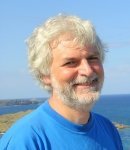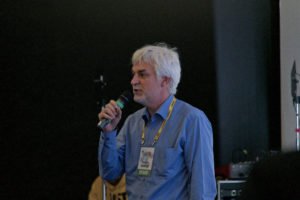- Email: g.barbiero@univda.it
- You should make an appointment by e.mail
Barbiero Giuseppe
- Assistant Professor in Ecology
Giuseppe Barbiero is head of the Laboratory of Affective Ecology at the University of Valle D’Aosta (GREEN LEAF UniVDA). He is co-editor of Visions for Sustainability, an international scientific journal that promote debates on ways in which sustainability can be addressed and applied in interdisciplinary and transdisciplinary perspectives. His main research interests are the biophilia hypothesis and the Gaia hypothesis. He is also interested in their applications such as Biophilic Design in architecture or Green Mindfulness in ecopsychology.
Frontiers in Psychology – Research Topics 2022
Biophilic Design Rationale: Theory, Methods, and Applications
Topic Editors: Rita Berto, Giuseppe Barbiero, Jack Leon Nasar
Biophilic Design tries to translate humans’ attraction to and desire for connection with Nature, namely biophilia, into the design of environments. However, to justify the psychological benefits and effectiveness of biophilic design, designers often draw inspiration from restorative environmental design, a way of planning the environment to support psycho-physiological well-being. Restorative Environmental Design derives from environmental psychology theories – in particular Attention Restoration Theory (ART) and Stress Recovery Theory (SRT).

A model of Biophilic Design
Google Scholar: Giuseppe Barbiero; Università della Valle d’Aosta
SELECTED PAPERS
BARBIERO, G. (2024). Biophilic design reframed. The theoretical basis for experimental research. Ri-Vista. Research for Landscape Architecture, 21(2), 80–91. https://doi.org/10.36253/rv-15678
STOCCO, A., TABACCHI, C., BARBIERO, G., PRANOVI, F. (2023) The influence of naturalness of the landscape structure on children’s connectedness to Nature in North-eastern Italy. One Ecosystem 8: e111973. https://doi.org/10.3897/oneeco.8.e111973
BARBIERO, G., BERTO, R., SENES, G., FUMAGALLI, N. (2023) Wilderness is the Prototype of Nature Regardless of the Individual’s Connection to Nature. An Empirical Verification of the Solastalgia Effect. International Journal of Environmental Research and Public Health 20(14): 6354. https://doi.org/10.3390/ijerph20146354
BOLTEN, B., BARBIERO, G. (2023). Biophilic Design: Nine Ways to Enhance Physical and Psychological Health and Wellbeing in Our Built Environments. In: Capolongo, S., Botta, M., Rebecchi, A. (eds) Therapeutic Landscape Design. SpringerBriefs in Applied Sciences and Technology. Springer, Cham. https://doi.org/10.1007/978-3-031-09439-2_2
BERTO, R., BARBIERO, G. (in press) Biophilia. In Oxford Bibliographies in Ecology. Ed. David Gibson. New York: Oxford University Press.
BERTO, R., BARBIERO, G., NASAR, J.L. (2022). Biophilic Design Rationale: Theory, Methods, and Applications Frontiers in Psychology, 12: 978689 https://doi.org/10.3389/fpsyg.2022.978689
BARBIERO, G., BERTO, R., VENTURELLA, A., MACULAN, N. (2021). Bracing Biophilia: When biophilic design promotes pupil’s attentional performance, perceived restorativeness and affiliation with Nature. Environment, Development and Sustainability. https://doi.org/10.1007/s10668-021-01903-1
BARBIERO, G., BERTO, R. (2021). Biophilia as evolutionary adaptation: an onto-and phylogenetic framework for biophilic design. Frontiers in Psychology, 12: 700709. https://doi.org/10.3389/fpsyg.2021.700709
BARBIERO, G. (2021). Affective Ecology as development of biophilia hypothesis. Visions for Sustainability, 16, 5575, 1-35. https://doi.org/10.13135/2384-8677/5575
BERTO, R., BARBIERO, G., BARBIERO, P., SENES, G. (2018). Individual’s Connection to Nature Can Affect Perceived Restorativeness of Natural Environments. Some Observations about Biophilia. Behavioral Sciences, 8, 34. https://doi.org/10.3390/bs8030034
COLUCCI GRAY, L., CAMINO, E., BARBIERO, G., GRAY, D. (2006). From Scientific Literacy to Sustainability Literacy: An Ecological Framework for Education. Science Education 90 (2): 227-252. https://doi.org/10.1002/sce.20109.



